
Romain Gary, born Roman Kacew, was a French novelist, diplomat, film director, and World War II aviator. He is the only author to have won the Prix Goncourt twice. He is considered a major writer of French literature of the second half of the 20th century. He was married to Lesley Blanch, then Jean Seberg.
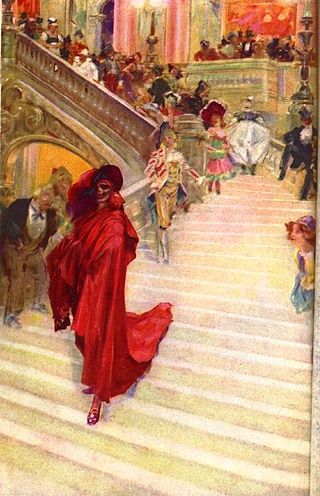
The Phantom of the Opera is a novel by French author Gaston Leroux. It was first published as a serial in Le Gaulois from 23 September 1909 to 8 January 1910, and was released in volume form in late March 1910 by Pierre Lafitte. The novel is partly inspired by historical events at the Paris Opera during the nineteenth century, and by an apocryphal tale concerning the use of a former ballet pupil's skeleton in Carl Maria von Weber's 1841 production of Der Freischütz. It has been successfully adapted into various stage and film adaptations, most notable of which are the 1925 film depiction featuring Lon Chaney, and Andrew Lloyd Webber's 1986 musical.

Daniel Deronda is a novel written by English author George Eliot, pen name of Mary Ann Evans, first published in eight parts (books) February to September 1876. It was the last novel she completed and the only one set in the Victorian society of her day. The work's mixture of social satire and moral searching, along with its sympathetic rendering of Jewish proto-Zionist ideas, has made it the controversial final statement of one of the most renowned Victorian novelists.

The Joy Luck Club is a 1989 novel written by Amy Tan. It focuses on four Chinese immigrant families in San Francisco who start a mahjong club known as The Joy Luck Club. The book is structured similarly to a mahjong game, with four parts divided into four sections to create sixteen chapters. The three mothers and four daughters share stories about their lives in the form of short vignettes. Each part is preceded by a parable relating to the themes within that section.

Go Tell It on the Mountain is a 1953 semi-autobiographical novel by James Baldwin. It tells the story of John Grimes, an intelligent teenager in 1930s Harlem, and his relationship with his family and his church. The novel also reveals the back stories of John's mother, his biological father, and his violent, fanatically religious stepfather, Gabriel Grimes. The novel focuses on the role of the Pentecostal Church in the lives of African Americans, both as a negative source of repression and moral hypocrisy and a positive source of inspiration and community.

The Prodigal Daughter is a 1982 political fiction novel by English author Jeffrey Archer. It is the story of Florentyna Rosnovski, the daughter of Abel Rosnovski of Archer's Kane and Abel. The novel, one of Archer's best sellers, portrays Florentyna's life from early childhood to her final ascension to the position of President of United States. In this way, President Kane becomes the first female U.S. president.

Aurora Leigh is an 1856 verse novel by Elizabeth Barrett Browning. The poem is written in blank verse and encompasses nine books. It is a first-person narration, from the point of view of Aurora; its other heroine, Marian Erle, is an abused self-taught child of itinerant parents. The poem is set in Florence, Malvern, London and Paris. The work references Biblical and classical history and mythology, as well as modern novels, such as Corinne ou l'Italie by Anne Louise Germaine de Staël and the novels of George Sand. In Books 1–5, Aurora narrates her past, from her childhood to the age of about 27; in Books 6–9, the narrative has caught up with her, and she reports events in diary form. The author styled the poem "a novel in verse", and referred to it as "the most mature of my works, and the one into which my highest convictions upon Life and Art have entered". The scholar Deirdre David asserts that Barrett Browning's work in Aurora Leigh renders her "a major figure in any consideration of the nineteenth-century woman writer and of Victorian poetry in general". John Ruskin called it the greatest long poem of the nineteenth century.

Twilight's Child was written in 1992 by V. C. Andrews. It is the third novel of five in the Cutler series.

Midnight Whispers is the fourth novel in the Cutler series, written in 1992 by the ghost-writer of V. C. Andrews novels, Andrew Neiderman. The novel follows the traditional formula of Andrews novels, and by being the fourth in its series, it thereby centres on the child of the protagonist of the first three novels.
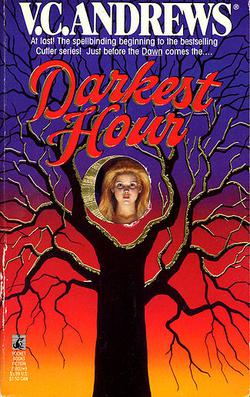
Darkest Hour is the fifth and final novel in a series of books about the Cutler family attributed to V. C. Andrews and published in 1993. It is allegedly based on the original ideas of Andrews but was written by ghostwriter Andrew Neiderman. Andrews is the credited author.
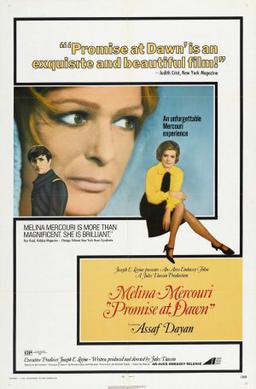
Promise at Dawn is a 1970 American drama film directed by Jules Dassin and starring Melina Mercouri, Dassin's wife. It is based on the 1960 novel Promise at Dawn by Romain Gary and the subsequent play by Samuel A. Taylor.

I, Coriander is a 2005 young adult novel by Sally Gardner, a historical fantasy set in London at the time of the Puritan Commonwealth. The novel traces the time period of the beheading of Charles the 1st through the Restoration of Charles the 2nd. It won the Nestlé Children's Book Prize Gold Award. It was also shortlisted for the British Children's Book of the Year and the Stockton Children's Book of the Year, as well as longlisted for the Carnegie Medal.
Ties That Bind, Ties That Break is a young adult novel by Lensey Namioka, published in 1999. The novel tells the story of a girl who defied tradition in China in the early 1900s and later moved to the United States. It received the Washington State Book Award in 2000. A sequel, An Ocean Apart, A World Away, follows the story of Ailin's friend, Xueyan.
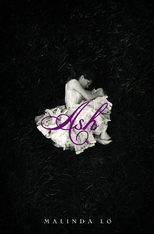
Ash is a young adult fantasy children's novel by Malinda Lo first published in 2009. It is a reworking of the Cinderella fairy tale that reimagines the title character, Ash, as a lesbian teenager. The novel centers around the familiar story of Cinderella, her father recently remarried, and lamenting the misery of her new life with stepsisters and a stepmother. The twist arrives when Ash falls in love with the King's respected huntress Kaisa, after she has made a commitment to dark fairy prince Sidhean.

Dastaan is a Pakistani television series based on the 1971 novel Bano by Razia Butt. Dramatized by author and screenwriter Samira Fazal, it originally aired on Hum TV in 2010. It is set amidst the partition of India and the establishment of Pakistan, taking place between 1947 and 1956. It depicts the story of Bano, a Muslim girl from a close-knit family living in Ludhiana, Punjab Province; the plot revolves around the trials and tribulations that she faces after she decides to dedicate her life to the All-India Muslim League.
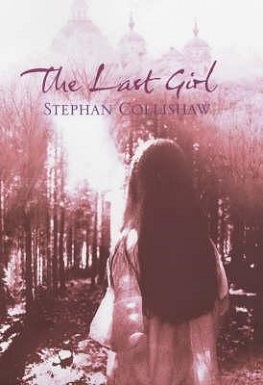
The Last Girl is the first novel of English author Stephan Collishaw. It tells the story of an elderly poet living in Vilnius in the 1990s, who is troubled by a guilty secret from his youth. The novel is set partly in 1990s Vilnius and partly in war time Wilno and deals with the holocaust in Lithuania.

Chances is a 1931 American pre-Code war drama film directed by Allan Dwan and starring Douglas Fairbanks, Jr. It is based on the 1930 novel by A. Hamilton Gibbs.
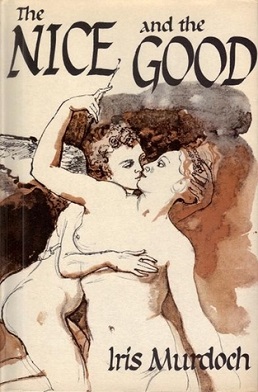
The Nice and the Good is a novel by Iris Murdoch. Published in 1968, it was her eleventh novel. The Nice and the Good was shortlisted for the 1969 Booker Prize.
Kati is a Swedish novel series by Astrid Lindgren. It tells the story of Kati, who travels, first to America, then to Italy and Paris. The novels were translated into many languages including English, German, Spanish, French and Russian.
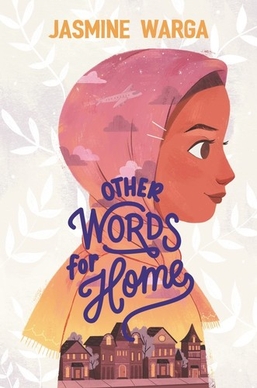
Other Words for Home is a 2019 free verse children's book by Jasmine Warga. The story is about a family of Syrian refugees with Jude, a 12-year-old girl, as protagonist. The book won a 2020 Newbery Honor.


















